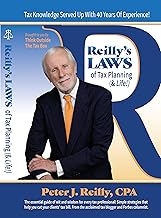This was originally published on PAOO on November 10th, 2010.
Rev. Rul. 2010-25, 2010-44 IRB 571, 10/14/2010
Back under the good old Internal Revenue Code of 1954, interest paid was pretty much deductible. In terms of making life complicated for those not among the ranks of the captains of industry, the one thing that was worse than the passive activity loss rules were the new rules about interest deductibility. Interest expense must be divided into three components trade or business interest, investment interest, and personal interest. Trade or business interest is deductible but might be suspended by the passive activity loss rules (At that point it will have lost its identity as interest and just be part of the loss). Investment interest is deductible, but only as an itemized deduction and only to the extent of investment income, generally (Don’t get me started on people who invest in hedge funds that are traders in securities) and personal interest is non-deductible. Of course, that’s not the whole story. I’m not going to discuss student loan interest. The three broad categories trade or business, investment, and personal are all you get when you are only looking at how the money was spent.
Which brings us to residence interest. There are two types. Acquisition indebtedness is used to purchase one or two residences. In addition to tracing the indebtedness to an acquisition of a personal residence the debt must be secured by “such” residence. There is a limit, not on the amount of interest but rather on the amount of indebtedness. $1,000,000 – not indexed for inflation. Then there is home equity indebtedness. The only requirement is that it be secured by a personal residence. If you borrowed money against your house to put into a business you can decide from year to year whether to treat the interest as home equity indebtedness which will give you a sure itemized deduction or trade or business interest deductible in arriving at adjusted gross income (generally better than an itemized deduction) but possibly subject to being suspended if the business is a passive activity. The limit on home equity indebtedness is also a limit on the amount borrowed. $100,000 – not indexed for inflation.
Now suppose you buy a $2,000,000 house putting 20% down. That would give you a mortgage of $1,600,000 and to make the math easy let’s say it is at 5%. Further, assume that you have no other debt. How much of your $80,000 of interest expense can you deduct? So you don’t have to get a calculator I’ll give you two choices – $50,000 or $55,000.
I have to admit that I always thought the answer was $55,000. I thought it was clear enough that I never really looked any further. It turns out, however, that there is a reading of the Code to the effect that interest on home equity indebtedness up to the $100,000 limit is deductible regardless of how the money was spent unless it was spent to purchase a residence. My inability to see that reading must have come from my falling into the “That doesn’t make any sense” trap. So what if it doesn’t make any sense it is what it is.
There are two tax court decisions with this holding. I went and looked at them and noted that in at least one the taxpayer had made himself obnoxious in nine ways till Sunday so they might have been trying to throw the book at him. Regardless, the Service in this ruling is saying that it will not follow the two tax court decisions on this issue that it won. So if you purchase a house with a mortgage of more than $1,000,000, $100,000 of the excess can be counted as home equity indebtedness.































































































